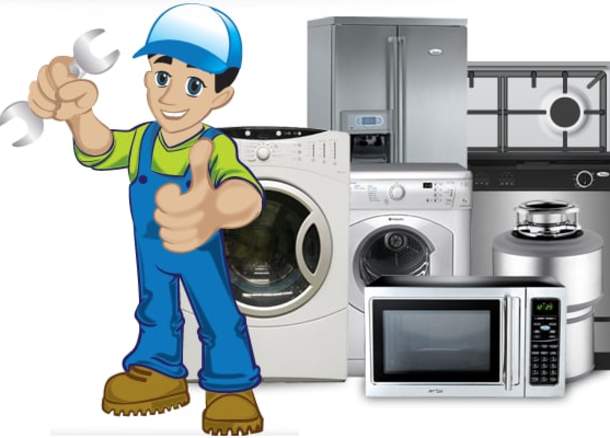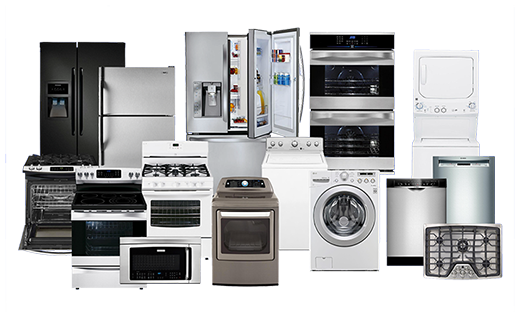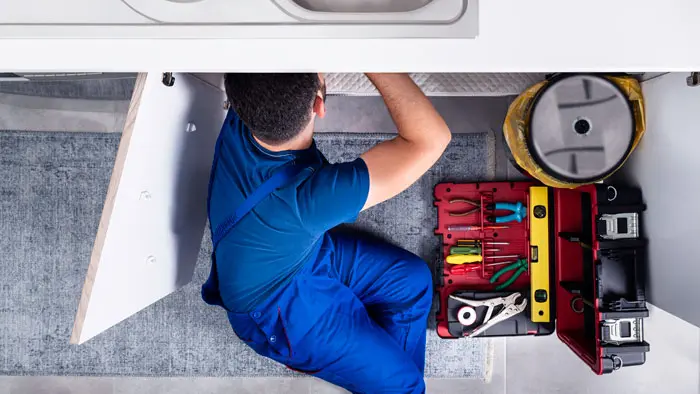The Ultimate Guide to Understanding Device Repair Work in your home
When your refrigerator stops cooling or your oven refuses to heat, it can feel overwhelming. Comprehending home appliance repair work in the house can conserve you money and time. You'll discover to recognize signs and symptoms, make use of vital tools, and follow an organized troubleshooting process. But before you begin, there are essential safety and security precautions you require to consider. What are one of the most common problems, and exactly how can you fix them? Allow's explore the essentials.
Common Device Problems and Their Symptoms
When your home appliances begin acting up, it's important to recognize the indicators beforehand. Disregarding them can result in bigger issues and expensive repair work. For example, if your fridge isn't cooling down appropriately, you may see cozy places or condensation forming. This can suggest a stopping working compressor or an obstructed vent.Your dishwashing machine may show problems via unclean meals or unusual noises throughout cycles. If you listen to grinding or clanking, it's time to investigate.A cleaning machine that will not spin or drain can leave you with soggy laundry, recommending a clogged up drain or a malfunctioning pump.Lastly, if your oven's temperature level appears off or it takes permanently to preheat, you could be managing a damaged thermostat. By staying alert to these signs and symptoms, you can resolve issues prior to they intensify right into significant repair work.
Important Tools for Device Repair
When you're tackling appliance repairs in the house, having the right tools is essential. Fundamental hand tools like screwdrivers and pliers will assist you disassemble and deal with numerous devices, while electrical testing devices guarantee you're functioning securely with wiring. Allow's look at what you need to start on your repair work trip.
Standard Hand Devices
Having the right devices is vital for effective device fixing in your home. Start with a reputable screwdriver collection, consisting of both flathead and Phillips kinds, as screws are usual in appliance assembly. Pliers are likewise essential; they help with gripping, turning, and reducing cables or little elements. A pair of needle-nose pliers can reach difficult situations quickly. You'll require a great adjustable wrench for tightening up or loosening nuts and screws. An utility knife is helpful for puncturing product packaging or insulation. Do not fail to remember a strong workbench or surface to securely arrange your devices and parts. With these fundamental hand tools, you'll be well-prepared to take on most device fixings that come your way.
Electrical Testing Gadgets
Along with basic hand devices, electrical testing tools play a necessary function in appliance repair service. These devices assist you detect electric concerns and assurance appliances operate securely. A multimeter is essential; it gauges voltage, existing, and resistance, enabling you to identify troubles rapidly. A non-contact voltage tester is one more must-have, allowing you discover real-time cords without making direct get in touch with, boosting your safety and security. Secure meters are wonderful for gauging present circulation in cords without disconnecting them, conserving you time and initiative. Furthermore, circuit testers can promptly examine if electrical outlets are working properly. By utilizing these devices, you'll simplify your troubleshooting procedure and improve your repair skills, making appliance upkeep a whole lot simpler.
Step-by-Step Guide to Diagnosing Device Issues
When your home appliance acts up, it can be aggravating, yet detecting the issue doesn't have to be frustrating. You'll learn to determine common troubles and apply efficient repairing techniques. Let's walk with the steps to get your appliance back in functioning order.
Common Home Appliance Troubles

Fixing Methods Described

Fixing Significant Kitchen Area Home Appliances: A Closer Look
Have you ever questioned just how to tackle typical concerns with your kitchen devices? Repairing significant kitchen area devices like fridges, ovens, and dish washers can be much easier than you think. Beginning by identifying the problem-- whether it's a refrigerator not cooling or a stove that will not heat. Usually, a basic reset or inspecting the power resource can fix the issue.For refrigerators, clean the condenser coils and inspect the door seals. If your stove's not heating, check the burner and thermostat. Dish washers might simply require a tidy filter or a reset to get them back at work. Constantly disconnect the home appliance prior to diving right into repair work to ensure your safety.Don' t neglect to consult the customer manual for specific troubleshooting tips connected to your model. With a little bit of patience and the right devices, you can confidently tackle home appliance repair services and conserve cash at the same time!

Troubleshooting Laundry Appliances: Tips and Techniques
When your laundry devices start acting up, it can really feel overwhelming, but troubleshooting them doesn't need to be a headache. Begin by checking the power supply. Validate the appliance is plugged in and the electrical outlet is working. Next off, examine the door or lid button; a defective switch can avoid the maker from operating.For washers, if it's not spinning, look for out of balance tons. Redistributing the garments could solve the issue. If your dryer isn't heating, clean the dust filter and inspect the vent for blockages.Listen for unusual noises; they can show an issue. If your device is dripping, examine the pipes for fractures or loosened links. Document any kind of mistake codes presented on electronic displays, as they can lead you in determining the problem. Lastly, speak with the individual guidebook for specific repairing pointers associated with your version.
Safety Precautions to Take During Repairs
Prior to you begin any home appliance repair services, it's important to prioritize safety to protect against accidents or injuries. Disconnect the device or transform off the circuit breaker to ensure no power reaches it while you work. Usage insulated tools to minimize the threat of electrical shock. Put on safety and security goggles and gloves to protect yourself from sharp edges or debris (Fixes washers and dryers Oro valley Dependable Appliance Repair).Make certain your workspace is neat and well-lit, so you can see what you're doing. Maintain kids and family pets far from the area to stay clear of disturbances and potential dangers. If you're taking care of gas home appliances, be added mindful; look for leaks prior to proceeding.Take your time, and do not rush through repairs. If you feel unpredictable regarding any type of my review here step, it's better to pause and research study than to guess. Adhering to these safety measures will certainly help produce a much safer setting for your DIY home appliance repair service project
When to Call a Specialist for Help
Just how do you know if it's time to call in a professional for device fixings? If you've tried fundamental troubleshooting without success, it's a clear sign. For example, if your home appliance still won't begin or shows unusual sounds after resetting it, do not wait to seek specialist help.When you observe leakages, smoke, or burning scents, prioritize safety and security and call a pro right away. vacuum cleaner repair shops near me These issues can lead to even more substantial damages or present risks to your home.Also, if your home appliance is under warranty, calling an expert is commonly the most effective path. They can assure that fixings won't void your guarantee, conserving you money in the long run.Finally, if you're not sure or awkward with intricate repairs, it's smart to leave it to the professionals. Keep in mind, tackling challenging problems without the best know-how can bring about pricey errors. Trust a specialist when doubtful!
Often Asked Concerns
Exactly How Can I Protect Against Device Troubles in the Future?
To avoid device problems in the future, you ought to do routine maintenance, check for wear and tear, tidy filters, and stay clear of overloading. Remaining aggressive will certainly assist prolong their lifespan and keep them running smoothly.
What Are the Many Typical DIY Device Repair Work Mistakes?
You might neglect safety and security precautions, avoid troubleshooting steps, or use incorrect devices when trying DIY device repair work. Rushing the procedure or ignoring manufacturer guidelines can bring about even more significant problems and pricey errors. Remain individual and educated!
Just how Do I Know if a Part Needs Replacement?
You can tell if a part requires substitute by looking for unusual noises, leakages, or irregular efficiency. If the appliance battles to operate correctly or shows noticeable damages, it's most likely time for a replacement.
Can I Utilize Generic Components for Home Appliance Repairs?
Yes, you can make use of generic parts for appliance fixings, however establish bosch repair near me they work - Washer dryer repair service Dependable Refrigeration. Generic components might save you money, yet they can influence efficiency or longevity, so weigh your choices meticulously before choosing
What Service Warranties Cover Appliance Repair Works?
The majority of device warranties cover repairs for producing defects, yet they frequently omit damage from abuse. Check your service warranty terms thoroughly, as some could need using certified specialists and initial parts for insurance coverage to continue to be valid.